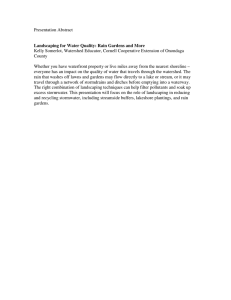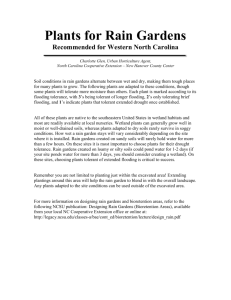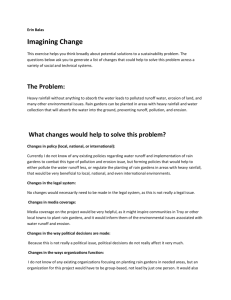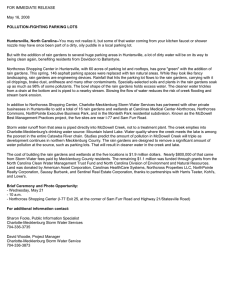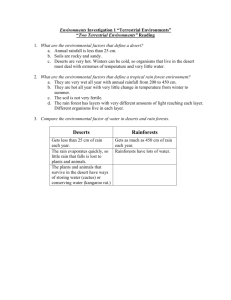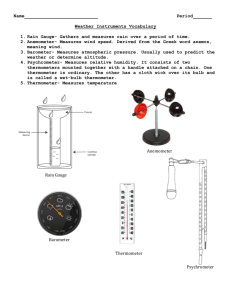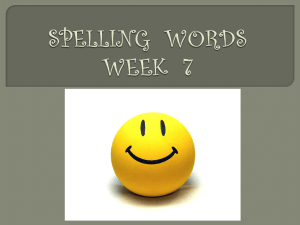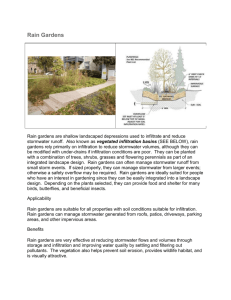DFA Urban Flooding Workshop
advertisement
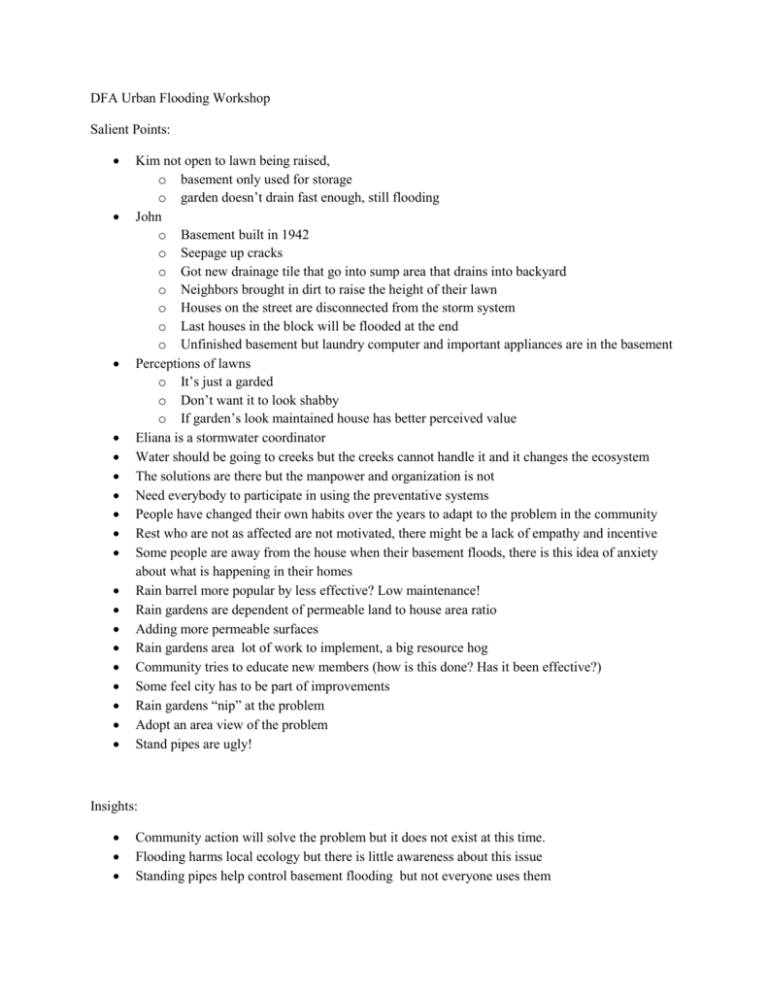
DFA Urban Flooding Workshop Salient Points: Kim not open to lawn being raised, o basement only used for storage o garden doesn’t drain fast enough, still flooding John o Basement built in 1942 o Seepage up cracks o Got new drainage tile that go into sump area that drains into backyard o Neighbors brought in dirt to raise the height of their lawn o Houses on the street are disconnected from the storm system o Last houses in the block will be flooded at the end o Unfinished basement but laundry computer and important appliances are in the basement Perceptions of lawns o It’s just a garded o Don’t want it to look shabby o If garden’s look maintained house has better perceived value Eliana is a stormwater coordinator Water should be going to creeks but the creeks cannot handle it and it changes the ecosystem The solutions are there but the manpower and organization is not Need everybody to participate in using the preventative systems People have changed their own habits over the years to adapt to the problem in the community Rest who are not as affected are not motivated, there might be a lack of empathy and incentive Some people are away from the house when their basement floods, there is this idea of anxiety about what is happening in their homes Rain barrel more popular by less effective? Low maintenance! Rain gardens are dependent of permeable land to house area ratio Adding more permeable surfaces Rain gardens area lot of work to implement, a big resource hog Community tries to educate new members (how is this done? Has it been effective?) Some feel city has to be part of improvements Rain gardens “nip” at the problem Adopt an area view of the problem Stand pipes are ugly! Insights: Community action will solve the problem but it does not exist at this time. Flooding harms local ecology but there is little awareness about this issue Standing pipes help control basement flooding but not everyone uses them Many use sump pumps but sump pumps are not preventative measures Rain gardens control outside water levels but people think gardens look messy and need high maintenance. Community organization has the most impact, but requires more resources such as time, awareness and confidence in solutions There has to be a visible presence of the community action if not people might ask, “why am I the only one doing this?” Kind of like Tax collection There is some anxiety in homeowners during heavy rains as they worry about what is going to happen to their property How Can We’s How can we motivate higher elevation residents to take action? How can we make rain gardens blend in with the aesthetics of the neighborhood? How can we develop empathy of the entire neighborhood towards this issue? How can we make flood problems a more conscious problem in the minds of residents? How can we incentivize the use of flood prevention measures in the neighborhood? How can we increase the desirability of rain gardens? How can we make rain gardens easy to maintain How can we make rain gardens easy to set up?
